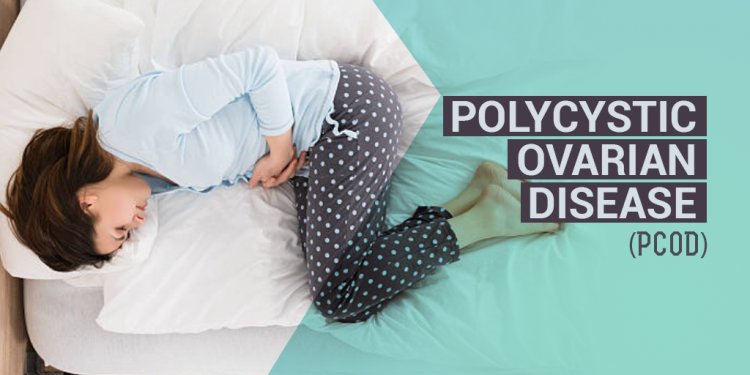How does PCOD affect your body

Polycystic Ovary Disorder commonly known as PCOD is a hormonal imbalance common amongst women which adversely affects her fertility. Some other side-effects of PCOD include;
- Irregular or unpredictable periods
- Sudden hair loss or abnormal hair growth in body
- Acne problems
- Rise in risk of other health problems including blood pressure and diabetes
A women’s body make varying types of hormones some of which may affect the menstrual cycle which may involve with the women’s ability to carry a baby. The hormones that influence PCOD involve:
- Androgens: These are male hormones but they are also present in women’s. Women suffering with PCOD have this hormone in relatively higher level.
- Insulin: This hormone is responsible in regulating blood level in our body. In case of PCOD this hormone does not work normally.
- Progesterone: In case of PCOD, the body does not generate sufficient amount of progesterone resulting in irregular or unpredictable periods.
Causes of PCOD:
The exact cause of PCOD is still unknown. It is believed that high levels of androgens prevent the ovaries to make regular eggs and ovulate.
Studies have revealed that insulin, genes and obesity are the most common causes of PCOD.
Symptoms of PCOD:

Image Source: Google
PCOD generally start when a women hits puberty. Initially, the menstrual cycles are regular but with passing time they may be delayed which may happen due to irregular ovulation. PCOD generates hormonal imbalance in the body which creates problem in the ovaries. Every month eggs are released from the ovaries which is a part of a healthy menstrual cycle. With PCOD the eggs are not released every month resulting in irregular or missed period. Irregular period leads to development of cysts or infertility in women.
Most women take medical assistance in case of infertility only then they realise about their condition. Majority of women suffering from PCOD have to deal with irregular periods, acne (on face, chest or upper back), and weight gain and hair loss (baldness in the scalp similar to men). Other symptoms may include the following:
The uterine line builds up for a longer duration so women experience heavy bleeding.
- Darkened skin around the neck and armpit
- Skin tags on the armpits or neck area
- Excess hair in the unwanted parts of the body similar to men. This condition is called ‘hirsutism’, which affects 70% of women suffering from PCOD.
- Mood swings
- Mild/intense pelvic pain
Who gets PCOD?
Generally 5% to 10% women between the ages of 15 to 44 or during their child bearing age suffer from PCOD. It is detected in women mostly in the age of 20s and 30s when they have difficulty in conceiving it’s only then PCOD is detected in them.
Doctors say that PCOD can occur at any age after a women starts her menstrual cycle. This disease is found in women of all age and ethics. Though the risk is high if one is obese or her mother, sister or aunt has the same condition.
How does PCOD affect your body?
Women suffering from PCOD have higher amount of androgens which can affect her body in numerous form.
- Infertility:
A healthy woman ovulates on a monthly basis. In case a woman is suffering from PCOD, her ovary may not release eggs which may induce infertility.
- Metabolic Syndrome:
Nearly 80% of the women suffering from PCOD are obese. In case of both obesity and PCOD, there is a high risk of increase in the sugar levels, high blood pressure and disturbance in cholesterol. Together these factors results in diabetes and heart risk.
- Endometrial Cancer:
If a woman doesn’t ovulate it prevents her uterine lining from shedding regularly. This results in thickened uterine lining which may increase the risk of endometrial cancer.
- Depression:
PCOD comes with hormonal changes, infertility, unwanted hair growth, obesity and baldness; all these factors can affect her emotionally which may result in depression and anxiety issues.
Diagnosis of PCOD:
Doctors typically diagnose PCOD in women if she is suffering from irregular periods, infertility, high androgen levels and cysts in the ovary or any two of them. The doctor may ask about these symptoms later followed by medical examination by one of the methods:
- A pelvic examination where a doctor inserts gloved hands into the vagina to check for any growths in the reproductive tracts.
- Blood test to check for higher levels of male hormones in the body. Blood test may also be done to check for insulin, cholesterol and triglyceride levels to check for diseases to heart and diabetes.
- An ultrasound to have a detailed follicular study and uterus related problems.















































